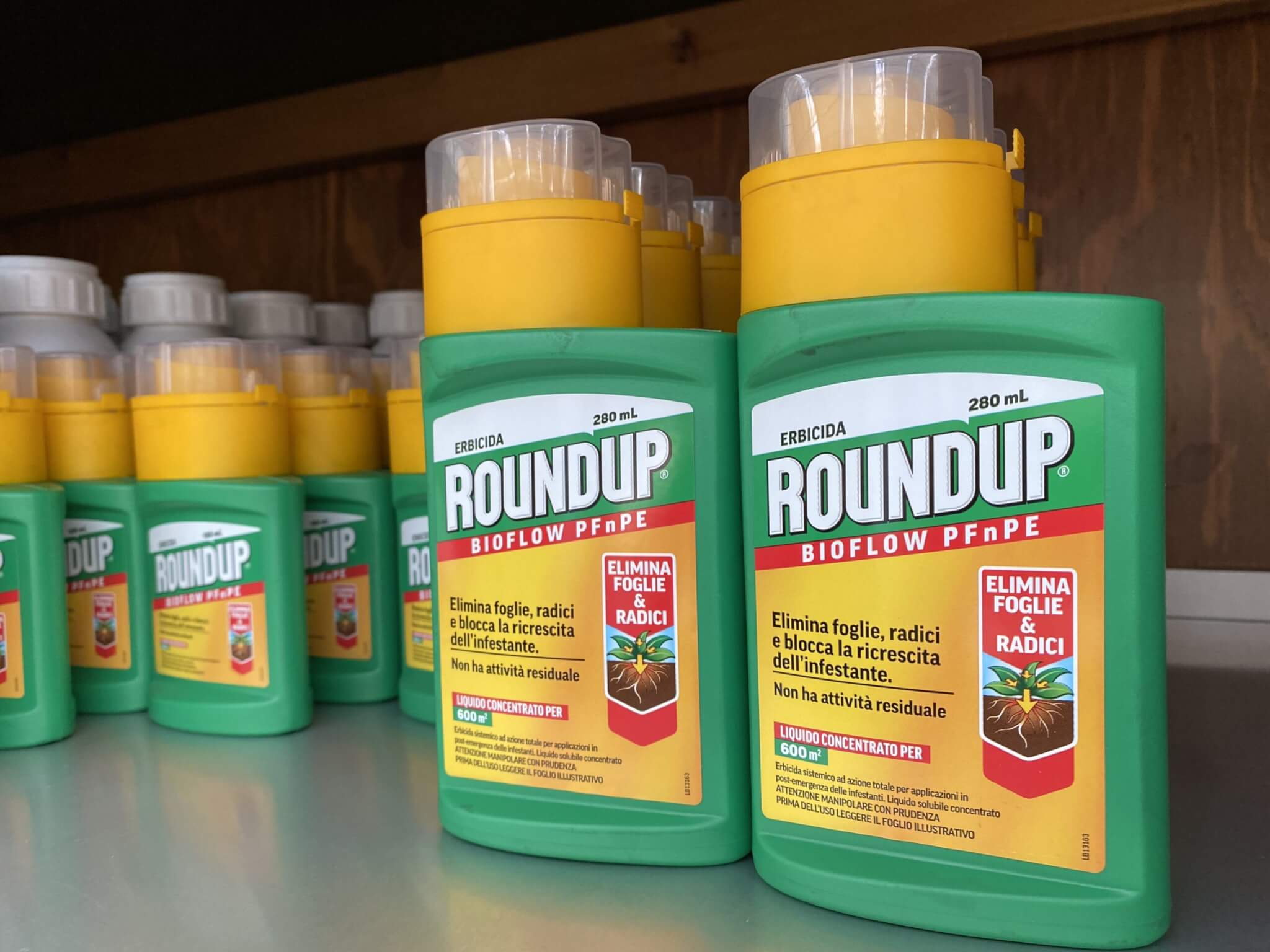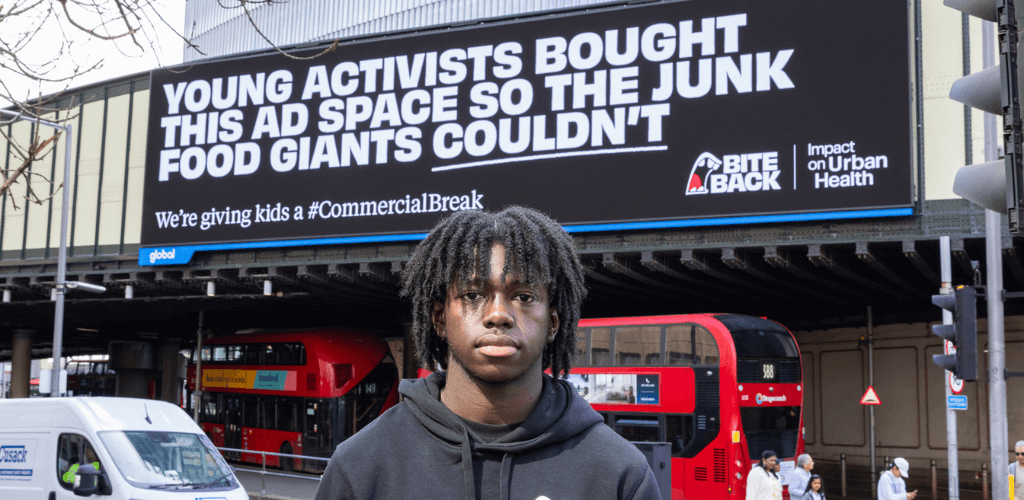A decade ago, an advocate for GM crops declared glyphosate was so safe that you could drink it – the video went viral. At the time, the Canadian economist in question then infamously refused to down a glass of Roundup, the herbicide’s commercial brand name… ten years on and a new landmark study finds that incremental exposure to the herbicide causes cancer.
This won’t come as a surprise to anyone who’s been following the glyphosate debate. As previously reported by Wicked Leeks, the chemical maker Bayer, formerly Monsanto, has shelled out billions of pounds to settle cancer claims linked to its use. By its own admission over 100,000 lawsuits have been brought against them, thousands still remain.
This raises the question: could the world’s most popular weedkiller be even more hazardous to health than previously thought? The EU thinks so. In reaction to this research Brussels is now reviewing the world’s most popular herbicide. There’s been no word from Westminster yet but campaigners are urging the UK to do the same, since this evidence raises fresh concerns over the health risks posed by glyphosate.
The study found that rats developed multiple types of cancerous tumours when exposed to glyphosate levels deemed safe under EU law. Since such studies cannot be conducted on people, studies on rats are considered most representative and accurate. The research was conducted by Italy’s Ramazzini Institute, including Professor Michael Antoniou from King’s College London.
“This is the first study to actually evaluate the long term acceptable daily intake of glyphosate. What’s also unique is that it compares two commercial formulations used by farmers. What we find is that leukaemia was detected at all doses of those subject to glyphosate, including, most worryingly, those exposed to the lowest dose,” explains Professor Antoniou.
“We observed early onset and early mortality for a number of rare malignant cancers, including leukaemia, liver, ovary and nervous system tumours. Notably, approximately half of the deaths from leukaemia seen in the glyphosate and GBHs treatment groups occurred at less than one year of age [for the rats] comparable to less than 35-40 years of age in humans. By contrast, no case of leukaemia was observed in the first year of age in more than 1600 Sprague Dawley historical controls in carcinogenicity studies conducted by the Ramazzini Institute and the National Toxicology Program (NTP),” stated Dr. Daniele Mandrioli, Director of the Cesare Maltoni Cancer Research Center of the Ramazzini Institute and Principal Investigator of the study.
“You can also see a whole range of different cancers whose incidence has gone up in male and female animals, especially in males. These cancers range from blood cancer to those that affect the skin, liver, thyroid, the nervous system, bone and mammary glands. Glyphosate alone gave rise to numerous different types of cancer,” concludes Professor Antoniou.
“This herbicide should be banned”
This latest study builds on past scientific research linking glyphosate to cancer. It was back in 2015, that the International Agency for Cancer, found that the herbicide was “probably carcinogenic to humans.”
“There’s very clear epidemiological evidence now I believe that links glyphosate herbicide use with non-Hodgkin lymphoma, which is a very serious, aggressive form of cancer,” detailed Professor Michael Antoniou in a webinar.
He continues: “By demonstrating that glyphosate formulations are carcinogenic hazards under current EU pesticide law, this herbicide should be banned, as simple as that. What needs to happen as a matter of urgency and as a precaution, the permitted does of glyphosate must be drastically reduced by at least 100 fold, but possibly even 1,000 fold.”
This matters because of the sheer scale of its use globally, where it is mainly used on food crops to control weeds, however it is also used in parks, public areas, playgrounds, and gardens. Glyphosate is also used by regenerative farmers in order to reduce their impact on soil, which is creating challenges of its own.
The first case of glyphosate resistance in Italian ryegrass growing in fields in Kent is also now highlighting the extent to which the herbicide is being used or overused by British farmers. The Agricultural Industries Confederation has said the issue is made worse by a reduction in mechanical weeding and tilling, which can lead to a greater use of herbicide to control weeds.
A world awash with glyphosate
It is not just a UK issue either – up to 800 million kg of glyphosate are applied each year in 130 countries. It is so pervasive that one study in the U.S found that 80% of people had glyphosate in their urine, alarmingly a third of those were children.
The producer, Bayer, formerly Monsanto, has dismissed this latest, comprehensive, multi-year, research paper. In a statement it said it had “serious methodological flaws.” However, this study comes not only from the researchers at Kings College London, but in collaboration with respected institutions from around the world including Boston College, George Mason University in the U.S., the Scientific Centre of Monaco and the University of Bologna. It’s also been peer reviewed.
“The controversy around glyphosate will continue to swirl. From our perspective, we see the amount of money that the agrochemical industry puts into sowing doubt into this kind of research, taking inspiration from the tobacco industry playbook,” states Josie Cohen, Head of Policy at the Pesticide Action Network, UK.
She points out: “So it’s not too hard for us to see why these studies aren’t taken as seriously as they should be, but hopefully that’s beginning to change.”
What’s interesting about this research is that it shines a light on prenatal exposure, where the rats were exposed to glyphosate before birth and during their lifespan, with subsequent cases of malignant cancer tumours. “When we are exposed to chemical pollutants, this doesn’t start in early adulthood. We get exposed to them from within the womb. And so this study tried to emulate and reflect this real world scenario,” details Professor Antoniou.
A U.S. study in 2021 found that pregnant women living near sprayed fields had significant concentrations of glyphosate in their urine during times when farmers were spraying fields with the herbicide. Another issue is that glyphosate is never sprayed just as the neat herbicide itself, it is normally mixed with other chemical co-formulants. This boosts the pesticide’s effectiveness.
“Research has shown that glyphosate-based herbicides as full commercial formulations can be up to 1,000 times more toxic than glyphosate alone. Yet the co-formulants are not disclosed. In the U.S. they’re not only not disclosed, but they’re labelled as inert, as if they do not have a toxic effect. But the science says that this is simply not true,” states Professor Antoniou.
He adds: “When we consider the toxicity of commercial glyphosate applications, we have to consider not just the herbicide itself, but the weedkiller as its commercial formulation, as bought and used by farmers and even by gardeners.”
Fresh evidence could drive change
The groundswell of research is now mounting. Earlier this year, the approval of glyphosate in the UK was extended to December 2026. However, the Health and Safety Executive have said that it will review its “use and take account of any new scientific, technical and regulatory knowledge. This will include anything that has changed or been updated since the approval decision.” The glyphosate study could become fresh evidence in such a review.
“I’m hoping that the depth and breadth of this new research will finally make regulators sit up and take note of just how deceptively toxic it is, because it takes time. This is the thing about glyphosate – it can give you the idea that it’s quite safe because in the short term, it doesn’t seem to give you much of an adverse reaction. But given enough time, as our data shows, it can have very serious consequences, not just cancer but other conditions such as non-alcoholic fatty liver disease,” says the Professor in Molecular Genetics at Kings College London.
He concludes: “I’m glad our study data has been put to the European Commission and they are now looking at it because they have to consider new evidence under EU law. Glyphosate, and even more so its commercial formulations, are carcinogenic. It’s as simple as that…it should be banned.”
Read the full Global Glyphosate Study here













Thanks for an excellent article on a very pertinent topic. Disabled people, kids, the elderly… We’ve had this chemical inflicted on us for years. As someone who’s been made bedridden numerous times from asthma, coughing and migraine headaches every time the management gardener sprayed this under my windows, I support an immediate ban. Given the burden on the NHS and the shocking decline in wildlife, we cannot afford to keep poisoning our fields and gardens!
I can’t be the only person to have read Stephanie Seneff’s book ‘Toxic Legacy’? Totally scary and the reason I switched to organic veg, and alerted both my chidren.